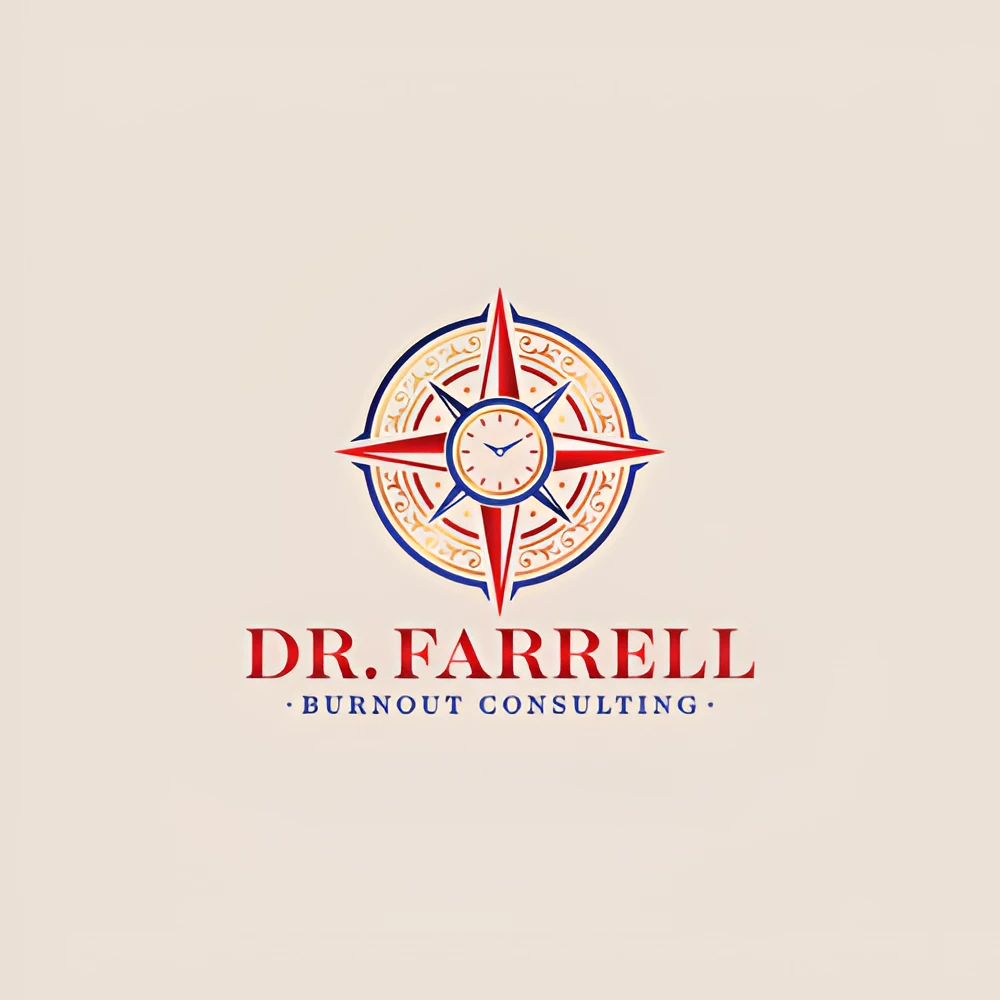Stress has become an unwelcome constant. From demanding careers to personal responsibilities, the pressures can feel relentless, often leading to burnout, decreased productivity, and a diminished quality of life. Many individuals and organizations are grappling with the pervasive effects of chronic stress, recognizing the urgent need for effective solutions. This isn't just about feeling overwhelmed; it's about the tangible impact on mental and physical health, decision-making abilities, and overall success.
Fortunately, there's a growing awareness of the transformative power of stress management consulting. This specialized field offers strategic guidance and practical tools to help individuals and teams not only cope with stress but also build resilience and thrive amidst challenges.
Understanding how to proactively manage stress is no longer a luxury but a necessity for sustainable well-being and peak performance.
Expert Stress Management Consulting Explained
Stress management consulting provides tailored strategies to individuals and organizations, addressing the root causes of stress. This approach focuses on building sustainable habits and systems for long-term well-being and improved performance. It helps you identify triggers and develop coping mechanisms.
Key Consulting Pillars
- Holistic Assessment: The consultant conducts a comprehensive analysis of current stress levels and their impact on daily life. This includes identifying personal and professional stressors, evaluating existing coping mechanisms, and understanding the physical and emotional manifestations of stress. The assessment provides a baseline for developing targeted interventions.
- Personalized Strategies: Consultants develop customized plans that align with individual needs and organizational goals. These strategies integrate evidence-based techniques, including mindfulness, time management, and communication skills, to create a practical roadmap for stress reduction. The focus is on actionable steps.
- Skill Building Workshops: Interactive sessions teach practical tools for managing stress effectively. These workshops cover a range of topics such as emotional regulation, cognitive restructuring, and setting healthy boundaries, equipping participants with immediate, applicable skills to navigate stressful situations. Participants learn to apply these techniques.
- Organizational Wellness Programs: Consulting extends to creating healthier workplace environments. This involves developing and implementing company-wide wellness initiatives, promoting work-life balance, and fostering a supportive culture that prioritizes employee well-being. A focus on preventative measures is key.
- Resilience Enhancement: The aim is to build long-term resilience, enabling individuals to bounce back from adversity. Strategies include developing mental fortitude, fostering a positive outlook, and strengthening adaptive capacities, preparing them for future challenges. This cultivates inner strength.
- Performance Optimization: By reducing stress, consultants help clients unlock their full potential and improve productivity. Lower stress levels lead to enhanced focus, better decision-making, and increased creativity, translating directly into better outcomes. Improved well-being boosts performance.
- Conflict Resolution: Consultants provide techniques for resolving interpersonal conflicts, a significant source of stress. They teach effective communication and negotiation skills, fostering healthier relationships and reducing tension in both personal and professional settings. Constructive resolution reduces friction.
- Sustainable Change: The consulting process focuses on creating lasting behavioral changes rather than temporary fixes. Through ongoing support and reinforcement, clients learn to integrate stress management practices into their daily routines, ensuring long-term benefits and sustained well-being. This fosters lasting well-being.
Your Partner: A Stress Management Consultant
A dedicated stress management consultant acts as a guide and facilitator, empowering you to identify and address personal and professional stressors. They provide expert insights and actionable strategies to help you develop resilience and thrive under pressure, working closely with you.
How a Consultant Helps
- Individualized Coaching: Consultants offer one-on-one coaching sessions to provide personalized guidance and support. These sessions allow for deep dives into specific challenges, offering tailored advice and strategies that resonate with your unique situation, ensuring maximum impact. This personalized approach is crucial.
- Stress Assessment Tools: They utilize scientifically validated assessment tools to identify specific stress triggers and their impact. These assessments offer objective data, providing a clear picture of stress patterns and areas requiring intervention, enabling targeted solutions. Data-driven insights are vital.
- Mindfulness and Meditation: Consultants introduce and guide clients through mindfulness and meditation practices. These techniques cultivate present-moment awareness, reduce rumination, and enhance emotional regulation, promoting a calmer and more focused state of mind. Practice brings inner peace.
- Time Management Strategies: They teach effective time management techniques to reduce feelings of overwhelm and improve productivity. This includes prioritizing tasks, setting realistic goals, and delegating effectively, helping clients regain control over their schedules. Efficient time use reduces pressure.
- Communication Skills Training: Consultants enhance communication skills to improve relationships and reduce interpersonal stress. This involves learning assertive communication, active listening, and conflict resolution techniques, fostering healthier interactions and reducing misunderstandings. Clear communication is key.
- Boundary Setting: They guide clients in establishing healthy boundaries in both personal and professional life. This is crucial for protecting energy, preventing burnout, and maintaining well-being, empowering clients to say no when necessary and prioritize their needs. Healthy boundaries protect well-being.
- Work-Life Integration: Consultants help clients achieve a harmonious balance between their professional and personal lives. This involves strategies for integrating different aspects of life, ensuring neither domain dominates, and fostering overall satisfaction. Balance leads to fulfillment.
- Follow-up and Support: Ongoing follow-up sessions and continuous support ensure the sustainability of implemented strategies. This provides accountability, allows for adjustments as needed, and reinforces positive habits, ensuring long-term success and sustained well-being. Sustained support fosters success.
Cultivate a Stress-Resilient Mindset
Developing a stress-resilient mindset involves building mental toughness and emotional intelligence, allowing you to navigate challenges with greater ease. It’s about reframing perceptions and cultivating positive responses to pressure, transforming your relationship with stress.
Building Resilience Habits
- Positive Affirmations: Regularly use positive affirmations to challenge negative thought patterns and reinforce self-belief. This practice helps rewire the brain, fostering a more optimistic outlook and enhancing self-efficacy in dealing with stressful situations. Affirmations boost self-worth.
- Gratitude Practice: Cultivate a daily gratitude practice to shift focus from stressors to sources of appreciation. This simple yet powerful habit improves mood, reduces anxiety, and enhances overall well-being, fostering a more positive perspective on life. Gratitude transforms perspective.
- Regular Exercise: Engage in consistent physical activity to release endorphins, which act as natural mood elevators. Exercise also reduces physical symptoms of stress, improves sleep quality, and boosts cognitive function, contributing significantly to mental resilience. Exercise fuels well-being.
- Healthy Sleep Hygiene: Prioritize consistent and quality sleep to allow the mind and body to recover. Establishing a regular sleep schedule, creating a conducive sleep environment, and avoiding stimulants before bed significantly improve stress coping abilities. Quality sleep recharges you.
- Mindful Breathing: Practice mindful breathing exercises to calm the nervous system and bring focus to the present moment. Deep breathing techniques can quickly reduce anxiety and promote relaxation, offering an immediate tool for stress reduction. Breathe deeply, find calm.
- Hobbies and Recreation: Dedicate time to hobbies and recreational activities that bring joy and relaxation. Engaging in enjoyable pursuits provides a much-needed mental break, reduces stress, and fosters a sense of purpose and fulfillment outside of work. Hobbies nourish the soul.
- Social Connection: Nurture strong social connections with friends, family, and supportive communities. Social support provides emotional validation, reduces feelings of isolation, and offers practical assistance during challenging times,1 significantly boosting resilience. Connect to thrive.
- Continuous Learning: Engage in continuous learning and personal development to foster a sense of growth and purpose. Acquiring new skills and knowledge boosts confidence, provides new perspectives, and offers a positive outlet for mental energy, reducing stress from stagnation. Learn, grow, thrive.
Take Control: Your Path to Less Stress
Stress does not have to be an inevitable part of your life. By embracing the principles of stress management consulting, you can transform your relationship with stress, moving from a reactive stance to one of proactive resilience. The insights and strategies shared in this blog are designed to equip you with the knowledge and tools necessary to build a calmer, more productive, and fulfilling life.
Take the crucial step toward a life less burdened by stress and more enriched by well-being.
Visit Dr. Farrell's Stress Management Support to explore how expert guidance can help you achieve lasting peace and optimal performance. Your journey to stress resilience starts now.


